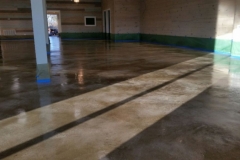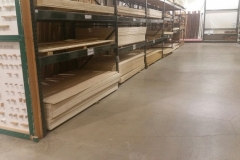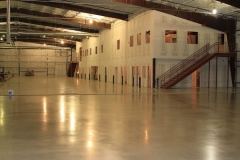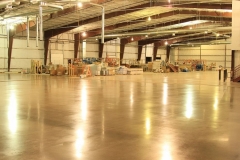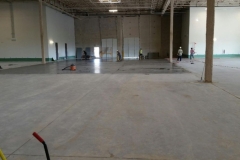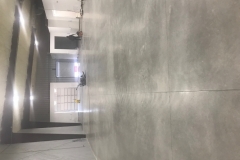Concrete Sealer
Concrete Sealer treats surfaces that are porous, which puts them at risk for damage and deterioration over time from the elements, moisture, stains, oil, grease, and other residues. Applying concrete sealer Austin can extend the life of new or existing structural and decorative concrete and help restore the surface to its original condition. Choosing the right type of concrete sealer is critical to creating low-maintenance and long-lasting surfaces. When looking for experts in concrete sealing, Austin businesses and homeowners choose AllStar Concrete Coatings to deliver a consistent, high-quality result.
Schedule ConsultationBenefits of Concrete Sealer with AllStar
- A restored, protected surface with concrete sealer Austin that can withstand many different types of damage and wear and tear.
- Access to professionals who will tailor a solution for your space that takes into account the distinct characteristics of your location, the intended uses, and your needs.
- Craftsmen who have the skills and training to operate AllStar’s high-end, specialized equipment for both new and existing concrete surfaces.
- An ability to keep within time and budget constraints while focusing on the details that matter to achieve your desired outcomes.
- A thorough understanding of all the latest techniques and industry best practices to help you weigh the pros and cons of different approaches to getting you the concrete surface you desire.
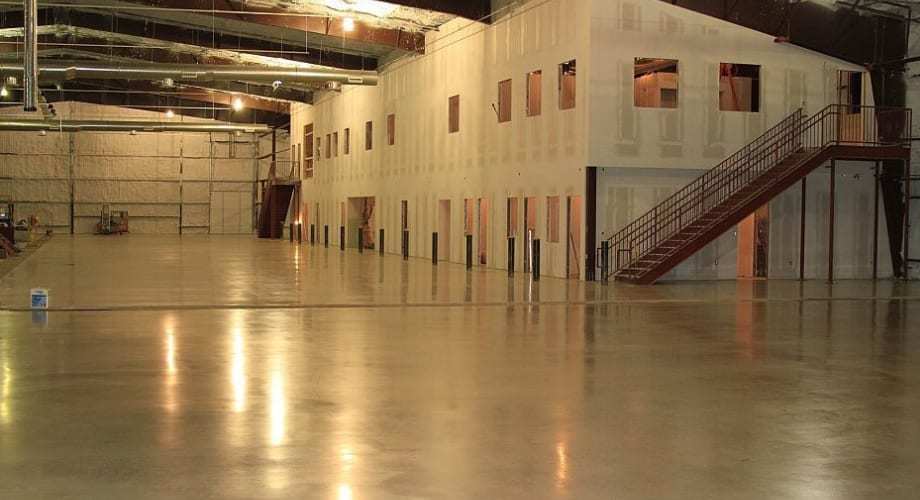
sealed concrete
Concrete Sealers We Offer
The pros at Allstar Concrete Coatings know exactly how to get the most out of your surfaces in the long term. Sealers can be applied to plain concrete, stamped concrete, stained concrete, colored concrete, stenciled concrete, exposed aggregate, polished concrete, and engraved concrete. A concrete floor sealer can extend the life of your new and existing concrete in a variety of interior and exterior settings, including:
- Warehouse Flooring options
- Tilt walls/Exterior concrete wall paint
- Manufacturing facilities
- Interior concrete flooring
- Pool decks
- Driveways
- Commercial Flooring
- Retail concrete flooring
Depending on your needs and preferences, we may recommend you use:
- Acrylic sealers for interior and exterior projects to protect against water damage.
- Densifiers for interior dust proofing and sealing.
- Epoxy sealers for indoor use to provide abrasion and water resistance.
- Penetrating (or impregnating) sealers for projects outdoors where invisible protection is desired.
- Polyurethane sealers in high-traffic or decorative applications that resist chemicals.
- Polyaspartic sealers when UV and stain resistance is important and when you need a project completed quickly.
For your job, which concrete sealant should you pick? Investigating the various varieties of concrete sealers and how each product can meet your needs will help to provide the answer:
Concrete Acrylic Sealer
Concrete sealer made of acrylic is inexpensive, simple to use, and suitable for both indoor and exterior surfaces.
Benefits include:
- Available in a variety of sheen levels, are non-yellowing, and UV resistant
- Protects against chlorine and water
- Enhances the color and protects the surface of attractive interior floors.
- Dries rapidly
- Cost-effective solution
Perfect for: Pool decks, driveways, and residential interiors
Water-based – Water-based acrylics don’t last as long as solvent-based acrylics but have lower VOC and odor levels.
Solvent-based- Solvent-based acrylic sealers tend to last longer and have a glossier sheen. Solvent-based sealers should be used on exterior surfaces over water-based options
Concrete Densifier
Concrete densifiers are made up of 4 main types. Sodium, potassium, lithium, and colloidal. Each has there own unique characteristics but technically they all harden and dustproof the floor.
Benefits include:
- creates a harder and dustproof floor
- has a clean, natural finish look
- does not dramatically change the darkness of the floor
- does not peel or flake
- tire mark resistant and scratch resistant
Ideal for: warehouse floors, retail stores, industrial and manufacturing facilities
Epoxy Sealer
Most epoxy sealer applications are applied indoors due to the risk of yellowing over time from UV exposure. Most epoxy floors are top coated with polyurethane or other UV-stable coatings to prevent this from damaging the overall look of a finished floor. Epoxy sealers are widely used on concrete countertops, high-traffic areas, stained interior concrete, and concrete overlays.
Benefits:
- Excellent adhesion when used as a primer
- Resists abrasion
- Can be used in high-traffic and food-grade environments if the correct product is chosen
- Protect from water intrusion
- Come in clear and pigmented options
- Comes in high gloss or low sheen.
Ideal For: interior Concrete, primer
Penetrating Sealer
Pores beneath the surface are sealed by penetrating sealers such as silicates, siliconates, silanes, and siloxanes.
Benefits include:
- safeguards against severe weather
- defends against stains and deicing agents
- protects against freeze-thaw damage
- does not change the concrete’s look
- keeps you from slipping in cold or muddy weather
Ideal for: Pool decks, driveways, bridges, masonry
Polyurethane Sealer
Concrete sealant made of polyurethane creates a shielding film that offers resistance to chemicals and abrasion. Both water-based and solvent-based solutions of polyurethane concrete sealer are available.
Benefits include:
- typically thicker than acrylic sealers
- offered in a variety of sheens
- non-yellowing
- extremely durable finish
- great chemical resistance
Ideal For: Interior and Exterior floors, topcoats, heavy-use facilities
Polyaspartic Sealer
Concrete sealed with polyas[artic sealers usually requires a quick turnaround. These coatings dry extremely fast and provide a beautiful and durable option when the dry time would otherwise be an issue.
Benefits include:
- dry extremely fast
- offered in a variety of sheens
- UV stable
- durable finish
- exceptional chemical resistance
Ideal For: Interior and Exterior floors, top coats, heavy-use facilities
What do you need for your next Concrete Sealing project?
Now that you know a little bit more about the many kinds of concrete sealers, let’s look at the projects you want to finish and see which concrete sealer could be best for you:
Concrete driveway sealer – Location must be taken into account when selecting the best concrete sealant. Silane or silane/siloxane blend-based concrete sealers should be used in colder climates; silane/siloxane sealers or acrylic-based solutions can be used in warmer climates. However, acrylic concrete sealers are the best choice for decorative finishes, high glosses, or enhancing color.
Concrete sealing for cracks and seams – Concrete cracks can be brought on by anything from thermal expansion to the growth of tree roots. A sealant will keep moisture out of concrete cracks and seams on driveways. Concrete surfaces will be safeguarded against freezing and thawing cycles by using a concrete crack sealant that is waterproof.
Concrete in basements, garages, and warehouses endures a lot of wear and tear over time. Applying concrete floor sealer will not only increase and preserve the beauty of your floor but also its lifespan. Both water-based and solvent-based acrylic concrete floor sealers are available to homeowners. However, compared to water-based acrylic sealers, a solvent-based internal concrete floor sealer will offer more years of service life.
Interior Concrete Sealing – Because liquids can penetrate the surface of bare concrete and transfer stains into the slab, it is susceptible to staining. Concrete needs to be sealed to stay shielded from heat, stains, and etching in order to function properly as a countertop or basement flooring material.
Concrete sealing can be very beneficial, particularly if you are looking for a surface that is:
- Easy to maintain
- UV and chemical resistant
- Durable
- Breathable
- Slip-resistant under both wet and dry conditions
- Inexpensive for certain applications
- Protected against damage associated with moisture
- Aesthetically pleasing
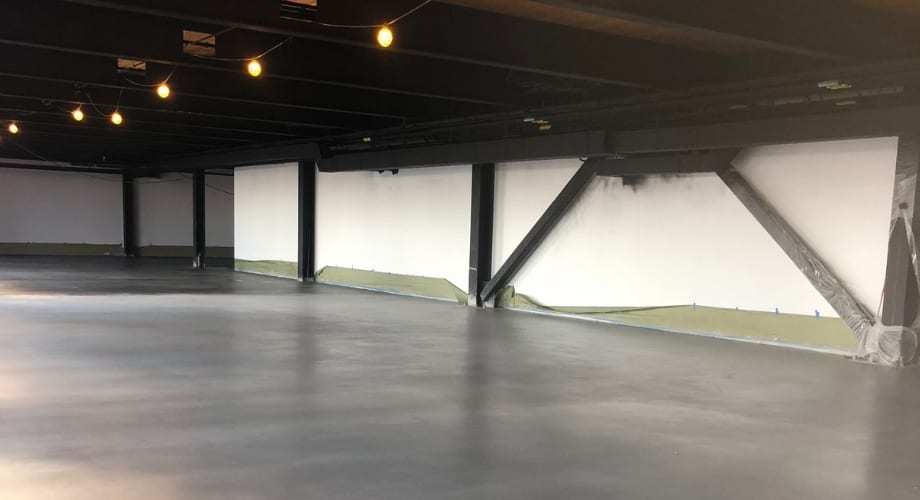
austin concrete sealer
How Concrete Sealer Works
Want to protect your concrete surface from cracks, deterioration, and other types of damage? Give us a call or complete our Schedule Free Consultation form, and someone will be in touch with you shortly.
After the consultation is complete, we will use what we learned about your project to inform a recommended set of next steps for you to approve.
Once you have the opportunity to review this free, no-obligation quote, we can answer any questions you might have. After you approve the estimate, we can schedule work to begin.
Although every project is slightly different, we generally follow the same process for our concrete sealing jobs:
- Inspect the surface to determine whether an existing concrete floor sealer needs to be removed or just cleaned thoroughly.
- Dislodge all dirt and debris, clean stains, and strip any existing sealer.
- Fill any cracks discovered on the surface.
- Apply professional-grade sealers that meet your project requirements.
- When the initial coat is dry, apply additional coats of sealer, as needed or desired.
- Allow the surface to dry completely before allowing foot or vehicle traffic.
Your contact will be the project foreman, who will keep you up-to-date on the progress and supervise the crew on-site. All needed equipment, tools, and supplies will be delivered on time so that the job will start and end on time. If needed, one of our concrete floor sealer contractors can bring our own power supply for the project.
After the sealer has completely dried, we will arrange a time for you to meet us in person to review the scope of work. At this time, we will also provide you with guidance about how to take care of your floors in the future.
Free Consultation
Ready to learn more about how AllStar can help you? Take advantage of our free consultation to get the ball rolling.
Get Started

